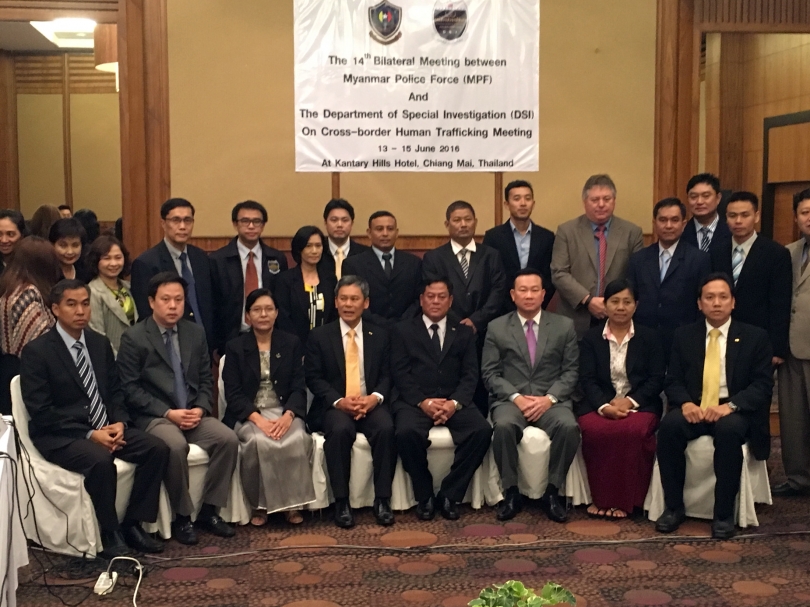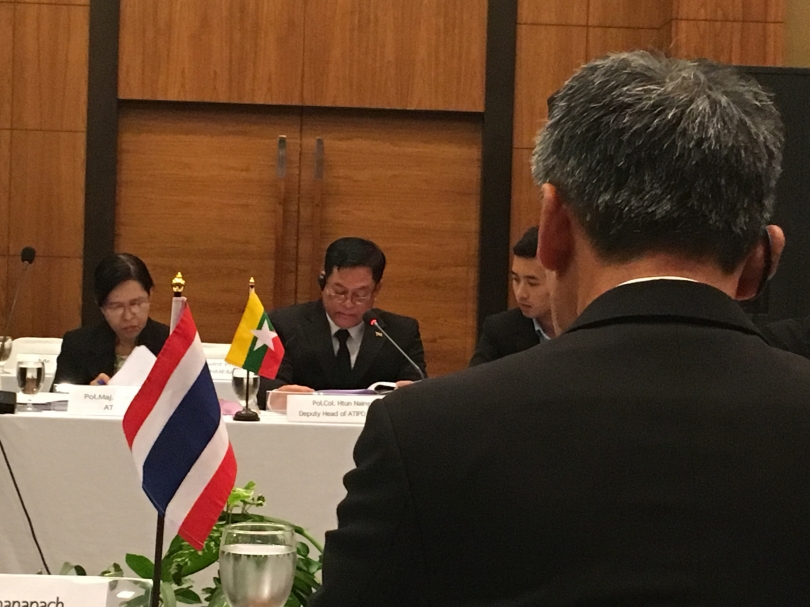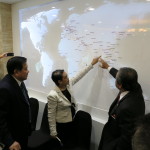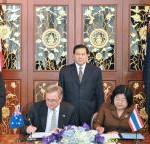
The Nation on 15 June 2016,
WITH more than 1,000 human-trafficking cases pending in the courts including a large number of Myanmar victims, Thailand has promised to speed up the legal process, the Department of Special Investigation (DSI) deputy chief Pol Colonel Songsak Raksaksakul said yesterday.
Court guidelines have been imposed, he said, adding that last year a new division of courts and prosecutors specialising in human trafficking was set up to facilitate a smoother workflow to process cases.
Songsak met yesterday with his counterpart Htun Naing, deputy chief of Myanmar Police Force’s Anti-Trafficking in Persons Division (ATIPD), seeking cooperation to sustainably resolve chronic human trafficking issues.
In the 14th bilateral meeting held in Chiang Mai province, Songsak said human trafficking was a mutual problem for both countries, which share common problems regarding the crime.
The best protection, Songsak said, was to have Thailand and Myanmar communicating with each other to discuss problematic cases that plague effective suppression of trafficking. He said trafficking cases were complicated and court hearings often take a long time to resolve.

“For example, the hearing process and information exchange between concerned agencies need to be brought to joint discussions to enhance the effectiveness [of the workflow],” he said.
Songsak said two Thai agencies currently deal with human trafficking cases: the Royal Thai Police has almost 1,000 cases, while the DSI has about 10 key cases relating to transnational crime organisations. However, many cases get stuck in court and prosecutors’ hearings.
Myanmar officials said they wanted to focus on trafficking of migrants working in the fishing industry, according to Songsak.
Htun Naing said many offenders had crossed the border into Thailand, which was an issue that would be raised in discussions.
He also pledged to follow up on human trafficking to Ambon Island in Indonesia, where many Myanmar migrants have been forced to work on Thai fishing trawlers.




